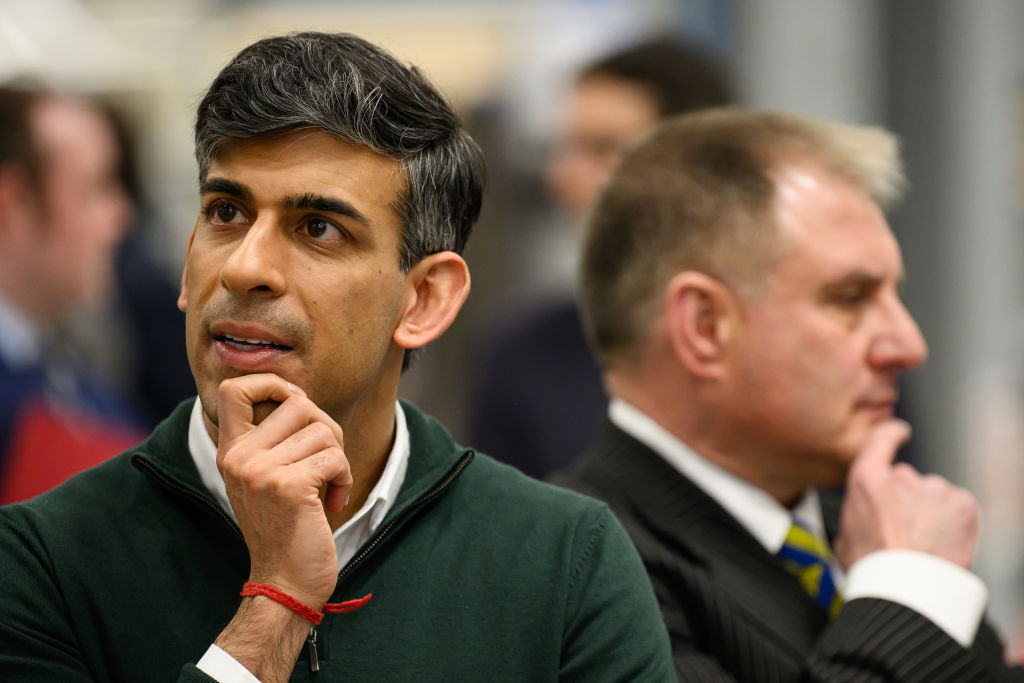Britain’s Conservative Party is on track for its worst election result in its history, completely undoing their massive 2019 win. If that does happen, it will be because the party turned its back on the populist blue-collar voters who made their triumph possible.
Polls currently show the Tories running over twenty points behind the Labour Party. Seat estimates project that Conservatives will capture between only 66 and 155 seats in the 650-seat House of Commons. Either result would be the party’s worst since the Reform Bill of 1867, and a massive drop from the 365 seats they won just five years ago.
It is not hard to see why they might be so decisively rejected, either. The 2019 majority was won because millions of blue-collar voters, fed up with their historic patron, Labour, wanted Brexit and radical change to a British economy that had not served them well for decades.
That change took years and many elections to build up. Many remained leery of the Tories, their historic foe. But their desire for change became too great and they overwhelmingly decided to give the Conservatives a chance behind the charismatic, pro-Brexit Boris Johnson.
This became known as the breaching of the “Red Wall”. That was the name given to scores of historically-Labour seats in England and Wales’ north and middle regions. Many had not voted for a Tory ever, and their defection was earth-shattering.
For a moment it appeared that Britain’s Conservatives had unlocked the secret to forming the conservative-populist coalition towards which much of the rest of the world was drifting. America’s Republicans were struggling with Donald Trump and France’s Republicans wondered whether to drift towards President Emmanuel Macron’s market-friendly centrism or Marine LePen’s nationalism.
Johnson’s Tories plunked solidly down for the tilt toward populism and were handsomely rewarded.
The conversion, though, soon proved to be skin deep. The successful exit from the European Union and the covid epidemic masked this for a while. Tories continued to poll well as late as spring 2021, as the arrival of the vaccine started to push the pandemic aside and they had yet to take the opportunity to make good on their populist election promises.
Then everything fell apart.
The first sign was the steady drumbeat of their leaders’ failures to adhere to the strict lockdown and social distancing guidelines the government had promulgated.
Modern populism is a struggle against the idea that there is an elite that sets the rules to favour them, while the rest of us be damned. Yet here was Johnson’s government conducting illegal office parties, escapes to country estates, and even illicit office romances, all of which the rest of the country was prevented from – and sternly lectured against – having.
This “one rule for me and another for thee” attitude pushed the Tories down behind Labour by early 2022 in national polls. Johnson resigned.
They had also messed up their policy promises. Johnson made much of spending to “level up” the Red Wall towns left behind, but little concrete was done.
Opposition to reducing anti-housing red tape in London’s wealthy – and safely Tory – suburbs pushed the government away from solving the country’s massive housing shortage.
The government also raised National Insurance Tax to limit the financial exposure of homeowners for nursing home care. This might have made fiscal sense, but working-class people would pay the higher taxes while homeowners in the prosperous south would get the benefits.
They have since reversed the hike, but the political damage was already done.
The party then followed this up with the disastrous decision to replace Johnson with Foreign Secretary Liz Truss. In office she proved to be a free market fundamentalist, proposing to cut taxes for the richest Britons without regard for fiscal stability.
This ideological crusade not only caused a run on the pound and dramatic hikes in interest rates. It showed populist blue-collar Britons that the Tories were everything they had long opposed, and then some. Tory poll ratings plummeted, and Truss resigned after less than 50 days in office, the shortest tenure by a Prime Minister in history.
Even all this might have been forgiven if Truss’ successor had swiftly returned to the 2019 fold. Instead, Rishi Sunak has governed like a management consultant. Government by spreadsheet and slick marketing gimmicks might work in London’s City, but they merely reinforce the notion elsewhere that the Tories do not care to represent the declining old seaside and manufacturing towns that give the party its majority.
This has been compounded by the utter failure to address those voters’ number one issue, immigration. Illegal immigration has soared, yet Sunak’s government has failed to stop the boats from coming much less reverse the tide. Legal migration has also soared to record highs, straining Britain’s already weakened finances and public services.
Sunak says he will act if returned to office, but voters rightly wonder why he would do better in the next few years when he has not done anything substantial in the year and a half he has already had.
All this has created the emergence of a new rival, the Reform Party, to the Conservatives’ Right. Headed by businessman Richard Tice, Reform is really a rebranded Brexit Party, which was itself a rebranded United Kingdom Independence Party (UKIP).
These earlier entities remade British politics under the leadership of Nigel Farage, leading the country out of the EU and giving voice to the frustrations of Red Wall voters.
Farage is back campaigning for Reform, and his focus on immigration and his everyday British-bloke image present a stark alternative to Sunak’s slick, polished approach. It is already working, as disaffected Tories have fueled Reform’s polling rise. It would not be a surprise at all if many more of these voters decided to make a clean break with Sunak’s Conservatives and swing hard to Farage and Reform.
The secret for a revived conservatism is actually no secret at all. In this drubbing, the Tories need to look back at what worked for them in 2019 and, going even farther back, in 1979. Margaret Thatcher’s successes then were built on that era’s Red Wall voter, “Essex Man”, but she could count on England’s upper class to stay loyal as she wooed the blue-collar workers.
Now, as Britain’s upper-income educated voters swing left, as they have worldwide, the only politically saleable alternative is to swing even harder in the populist working-class direction.
Accept this and make it the centre of a renewed Conservative Party and the future can still be bright for Britain’s Right.
Reject it, as Sunak and too many in the party have done, and the world’s most successful political party will likely find themselves hearing the political version of the traditional line that closes up England’s pubs: “Hurry up, please, it’s time”.





The populist revolt is about to up-end Portugal’s politics. If the traditional parties seek to exclude Chega, they will only turbo-charge the upstart